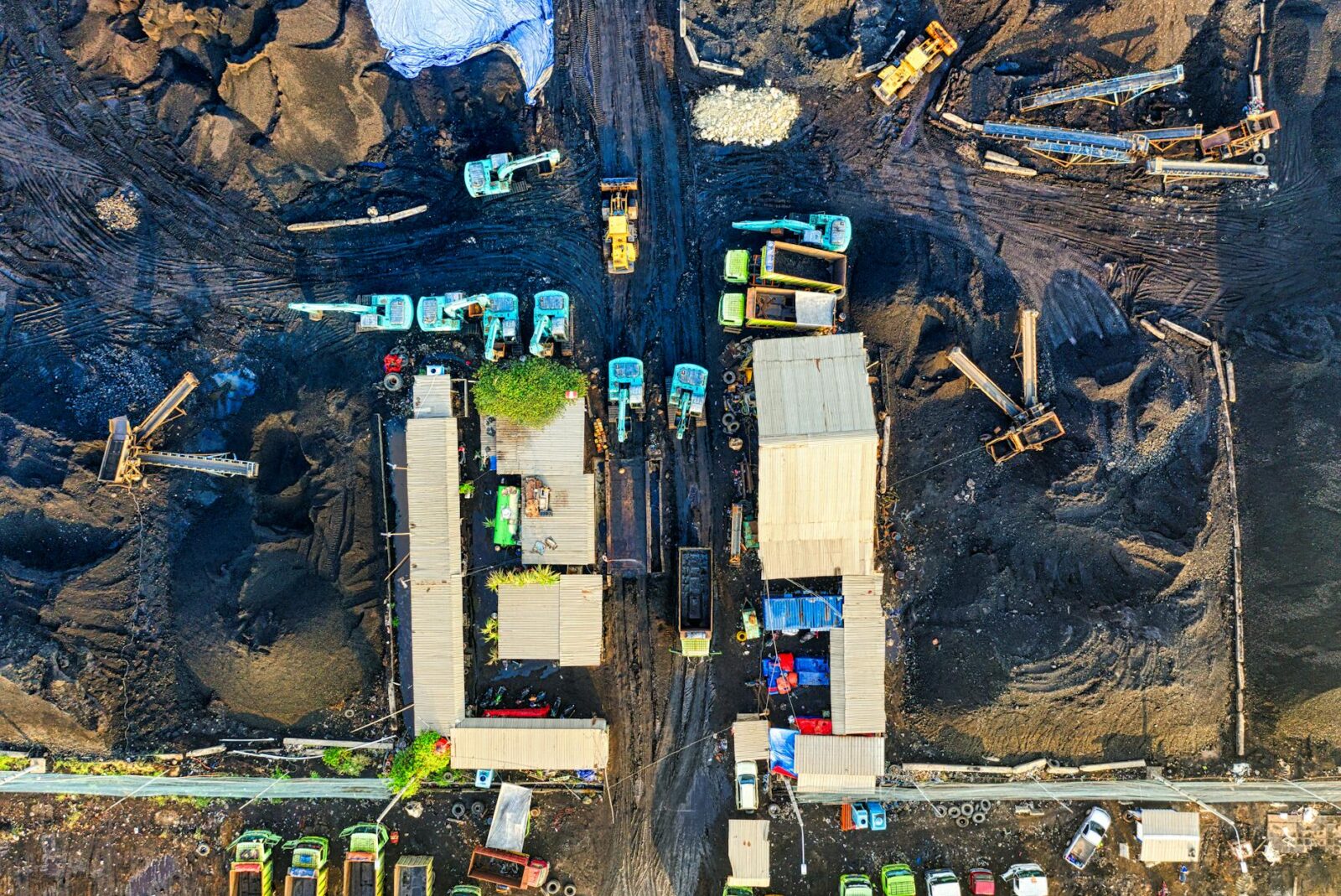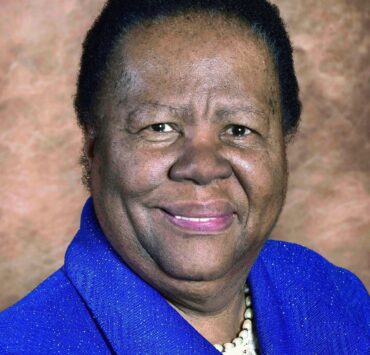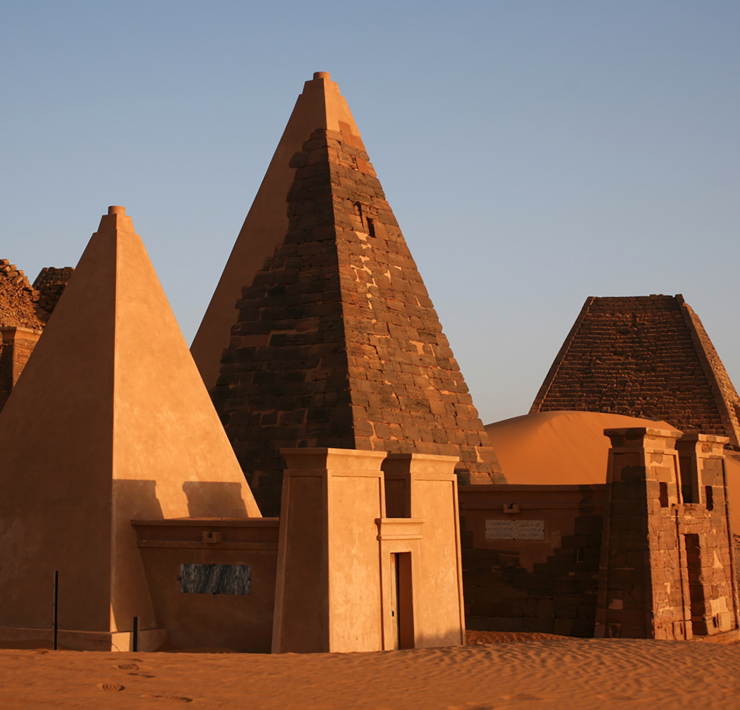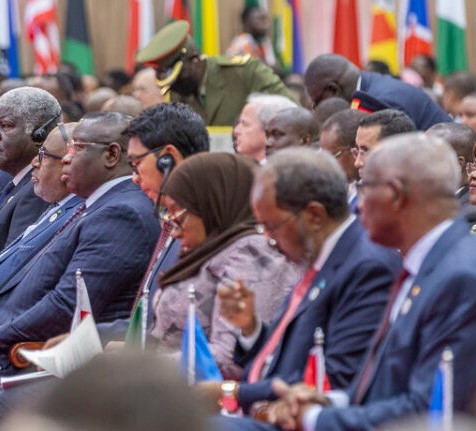Stop Foolish Talk of War in the Horn of Africa-Promote Economic Growth Instead

Lawrence Freeman is a Political-Economic Analyst for Africa, who has…
If Ethiopia is going to have access to a port, then there must be long term agreement, Lawrence Freeman explains why
With around 120 million people, Ethiopia is said to be the most populous land locked country in the world. Since the separation of Eritrea with a declaration of independence in 1991, Ethiopia has been using the Port of Djibouti for about 95 % of its import export trade.
But with the rapid growth of its economy its import export trade has also grown exponentially calling for the increase of the number of ports, upgrading of the capacity of the ports as well as securing its right to access sea outlet.
“If Ethiopia is going to make investments, which they have to do in infrastructure to make the port profitable and efficient, then they need to have a long term lease agreement.” Says Lawrence Freeman, an American political economic analyst for Africa (www.lawrencefreemanafricaandtheworld.com ).
In his brief stay with The Ethiopian Herald, Freeman has reflected his insight about how vital for Ethiopia is having a sea access with a guarantee of long term agreement, the need to access multiple ports to accommodate its rapidly growing economy and respond to the needs of its large population, as well as the benefits other countries of the region can secure from the Ethiopia – Somaliland Port access deal and the role of the regional countries. Enjoy reading!
It has been two months since Ethiopia and Somaliland signed the MoU for a port access. How do you see the progress of the agreement and what has been unfolding around the issue so far?
There appears to still be concern by Somalia about this Memorandum of Understanding (MOU). which I haven’t seen the actual complete agreement. There was also a report in the news that in the meeting that Prime Minister Abiy Ahmed had with the president of Kenya, as a softening of the Prime Minister’s position.
However, much of the discussion is just poorly informed, and not helpful to the Horn of Africa to any of the nations in the Horn of Africa: Somalia, Somaliland, Djibouti, Kenya, Eritrea, Ethiopia. The problem is the countries are reacting in a less than informed manner. If they understood physical economic growth, they would understand that Ethiopia needs multiple port access for its growing economy, number one. Number two, Ethiopia is the largest economy in East Africa and has great deal of potential for growth. Number three, this will benefit all the countries in the region because they will benefit from the expansion of trade and commerce. Number four, if Ethiopia is going to have access to a port, then they need to have long term agreement. It can’t be a one year two year; we’ll do it when we want. It can’t be capricious. If Ethiopia is going to make investments, which they have to do in infrastructure to make the poor profitable and efficient, then they need to have a long term lease agreement. Otherwise, they will not make the investments; nobody would. And number five, the reactions of many of the countries and leaders in the region represent a legacy of the colonial mentality of who owned what going back many, many years, or decades. And they represent what I would say ignorance in physical economics and are dominated by old grudges, rage and anger, all of which is inappropriate at this time. If you want to see Africa grow, if you want to see the region grow, if you want to see all the nations of the Horn of Africa develop and grow, then it’s ABCs. Very easy for me to see the purpose of having long term access to multiple ports. The argument for an access long term access to port is valid. And we should put aside all his other commentary and focus on what will help improve the lives of Africans living in that region.
How do you think could diplomatic approach help reach consensus among the countries that signed the MoU and others?
Well, the fact of the matter is, if the Somali government was more thoughtful, the eloquent solution would be simply. Say we consider Somaliland part of Somalia, if Somalia government is, is looking to the future, they would say okay, Somaliland is part of Somalia, and therefore we accept the agreement, because it’s an agreement between Ethiopia and land considered part of Somalia. So we will benefit, Somalia, and will benefit our neighbors. That would be the most thoughtful, eloquent solution in Somalia to say ‘we agree that this will be helpful to all our people.’ Now that that eloquent solution is not being pursued by Somalia, and Somalia, has made all kinds of threatening statements, which are really, in my view, kind of silly to think that Somalia is going to go to war with Ethiopia. It is silly, but it also dangerous. And Ethiopia has been defending Somalia with its treasure and blood with troops in Somalia, going back to the early 2006, and they’re still there. So the idea that you would be able to mobiliser a war against Ethiopia, it’s just silly, but dangerous. Then you have other countries coming in, and aligning themselves, for and against Ethiopia for and against the Somalia. This is also dangerous. They should keep their nose out of the Horn of Africa, they should study physical economics, they should listen and understand that this is beneficial to all the nations. Now I don’t know where the MOU stands two months, over two months after it was initially signed, but my advice is, we should go ahead with it. And this will help all of the nations and all of the people in the nations. We have to get away from anger, and historical rage, and historical pettiness and look to the future. What kind of economy are we going to have? What kind of economic growth are we going to have in the Horn of Africa and eastern Africa? That depends on the economy of Ethiopia.
What do you think can leaders of the region including Ethiopia, Somaliland and Somalia can do to reach a win win solution?
I think that the leaders of sovereign nations should be able to sit down and discuss calmly, without anger. Without ancient rhetoric, they should sit down and discuss how we can benefit all the people of our nation. Now, I don’t know where the memorandum of understanding is at this point, because of it’s been a long time–it’s been 10 weeks since it was signed. But I would think this pursuit is a viable alternative to Ethiopia having access to this waterway, the Red Sea, the Gulf of Aden, the Indian Ocean … etc. And , there could be other ports that could be pursued. The main thing, from my standpoint as a physical economist is Ethiopia should have a modern port. And, without a long term agreement, they’re not going to make the investment in a modern board, nobody would. And Somalia should not call this annexing their land. It’s not annexing any part of Somalia. They’re making an agreement. It’s not annexation. Now, I believe, personally, that there outside forces that are manipulating the situation, because there were forces that don’t want to see a strong, independent sovereign Ethiopia. And these outside forces are trying to weaken Ethiopia, just like they did in the war with Northern Ethiopia.
What kind of role do you think Ethiopia would play in the peace and security of the red sea region if it sets up naval force?
Actually, in Ethiopia, he’s also getting, I believe, several, maybe 12 miles of area, of land along the water way. That’s good. Because the whole Red Sea area is insecure, as we’ve seen with these recent attacks. If you have another Navy, that helps you provide more security. So it’s not a bad thing is a good thing. And I believe, it is manipulated by geopolitical forces, who don’t want to see peace, who don’t want to see prosperity in the Horn of Africa. But a port in a navy military base, could help the situation in the Red Sea, I don’t see it as a negative, it could be a positive.
Many countries from diverse corners of the world show interest in the red sea region. As a result they my show concern on the new development like Ethiopia and Somaliland MoU. But is there any way they can also contribute in settling the issue smoothly?
I think you see some countries trying to help the situation. The visit of the Prime Minister [Abiy Ahmed] to Kenya probably was a positive diplomatic trip, and it may improve the situation. I think it’s reasonable for countries in that region, have discussions with Ethiopia, have discussions with Somalia, and other countries in the Horn of Africa. That’s how problems should be solved. They should be solved by African nations, Sub Saharan African nations involved in that region, who keep care about the future standard of living of their citizens. And among them, there should be discussion. I’m sure there are many private discussions going on among people in the African Union, and IGAD and other platforms for African nations. And that should be going on and they should be the ones to resolve this. There is absolutely no reason for conflict, none zero. And anybody who’s talking about that is being foolish, and also hurting the wrong people by even promoting a discussion of war. This can be resolved by leaders of nations calmly talking among themselves.
Prior to the signing of the MoU between Ethiopia and Somaliland many countries from different corners of the world have come all the way to Somaliland and leased the port there. Why do you think does it cause so much uproar when Somaliland signed similar agreement with Ethiopia?
That gives you a clue as to the fact that somebody wants conflict, because as you pointed out, other countries think the UAE and the international port company have had agreements in Somaliland. So as you pointed out, this is not the first time and therefore, why now, it you get this stupid talk about war. So that’s a clue. That tells me that somebody wants conflict, that somebody doesn’t want good negotiations between Ethiopia and Somalia. Some geopolitical force, doesn’t want Ethiopia to become a dominant growing economic power in East Africa. These are clues to people like me, who understand the way the world operates. And since the beginning of the Prime Minister’s taking the position as prime minister in 2018, there have been one after another attacks on Ethiopia that are trying to prevent Ethiopia from fully developing, and other people who forces who are also using the internal situation Ethiopia, where you have this ethnic nationalism, which is an attack on the nation state, and its attack on Ethiopian citizenship, and that ethnic nationalism is also being supported by outside forces. So I have seen Ethiopia being a victim of many different operations over the last six years now, it’s quite possible that the government could handle this situation better. If I were advising them, I would tell them things to do that could help. But their pursuit of economic growth for their country is right. And it’s to the benefit of all the nations in the region. In fact, implicitly it’s a benefit for the entire continent of Africa.
What do you think would be the way forward the MoU signed between Ethiopia and Somaliland?
I think the best way to handle it is to handle it through private, nonpublic discussions with the leaders of the countries in the region. I mean, you could have a conference. And you could have a conference that discusses economic growth for all the countries of the Horn of Africa, and the importance of development, and present information on how the country would grow with another port, with advanced Infrastructure Transportation to that port. We certainly can reduce the cost of what Ethiopia is paying to Djibouti now, which is a billion and a half dollars. Not Birr, but dollars or other hard currencies. Ethiopia is using up a large a portion of his foreign exchange to maintain operations in Djibouti. And I think there’s a lot of people meddling in. And I would have the leaders of the region meet on their own and discuss from a thoughtful standpoint, from my standpoint, what are the potentials for economic growth, and reason for the necessity of Ethiopia having a port.
Thank you very much
by Zekarias Woldemariam, The Ethiopian Herald Source: LawrenceFreemanandtheworld website
Subscribe now for updates from Msingi Afrika Magazine!
Receive notifications about new issues, products and offers.
What's Your Reaction?
 PIN IT
PIN ITLawrence Freeman is a Political-Economic Analyst for Africa, who has been involved in economic development policies for Africa for over 30 years. He is the creator of the blog: lawrencefreemanafricaandtheworld.com. Mr. Freeman’s stated personal mission is; to eliminate poverty and hunger in Africa by applying the scientific economic principles of Alexander Hamilton





















